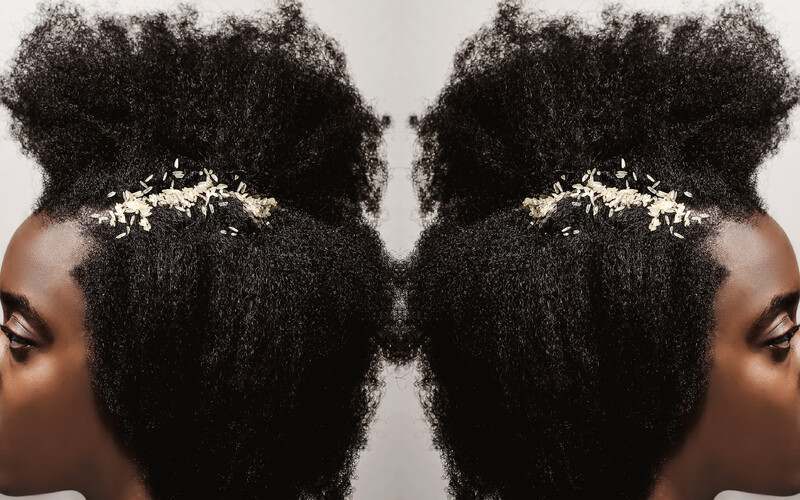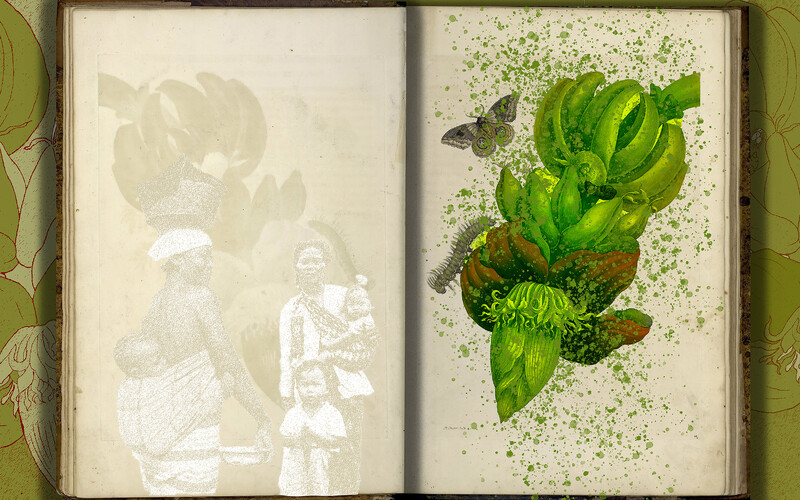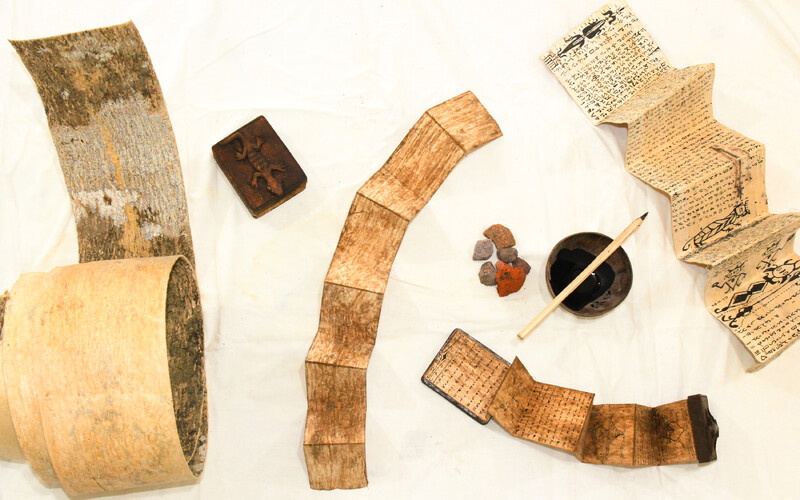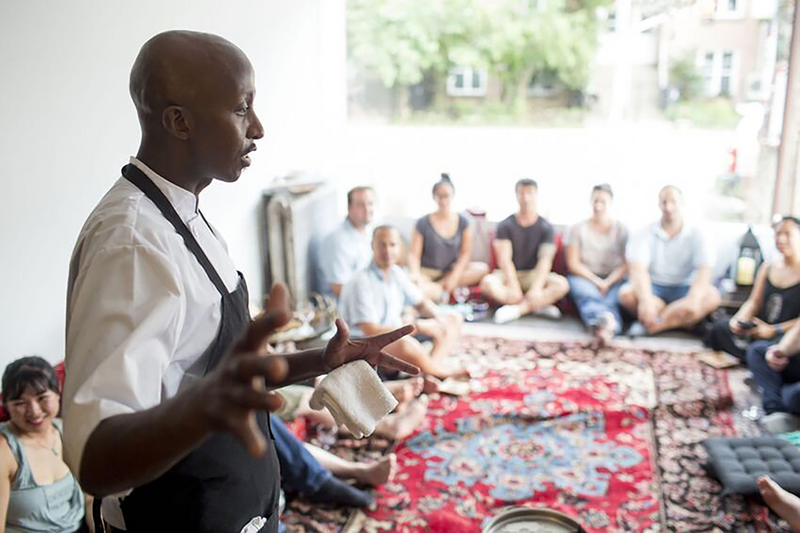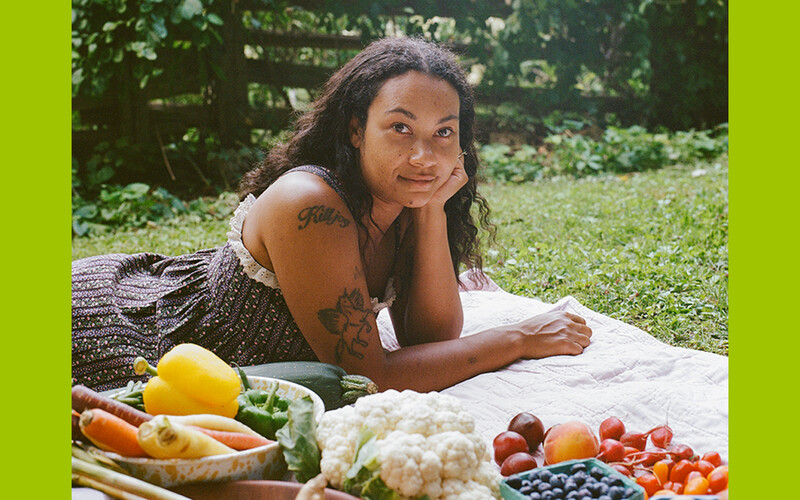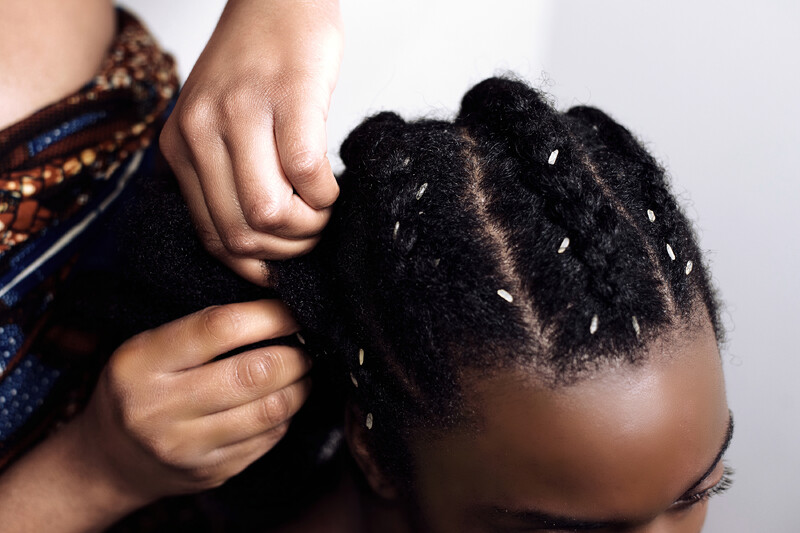
Overseeding: Botany, Cultural Knowledge and Attribution is a three-part exhibition that uncovers contributions that racialized people have made to botanical knowledge, previously obscured by European colonialism. Overseeding is the practice of spreading grass seed for the recolonization of lawns, land that would have had its own botanical communities. Turning the settler practice back on itself, the exhibition seeds over monocultural understandings of the origins of agricultural, botanical and herbal knowledge, returning pre-imperial ideas and diverse authors to the space.
Cycle 1: May 1 – June 3, 2024
Commencing the series, Inyang Essien’s Our Rice visualizes the strategy that African women developed, for braiding rice and other seeds and grains into their hair, preparing for being trafficked by the trans-Atlantic slave trade. The women’s actions would preserve culture and ensure the endurance of Maroon communities. African rice would also produce a highly profitable plantation crop, influencing cuisine in the American South, without benefitting those who brought it to fruition.
Cycle 2: June 4 – July 15, 2024
The second series, patricia kaersenhout’s Of Palimpsests & Erasure lays bare at whose expense Dutch naturalist Maria Sibylla Merian (b. April 2, 1647, d. January 13, 1717) achieved success and authored her most lauded book Metamorphosis Insectorum Surinamensium (The Metamorphosis of the Insects of Suriname), a volume of illustrations of insects with their host plants. Merian was a dedicated researcher, exquisite illustrator and an enslaver absolutely dependent upon the labour and expertise of enslaved Black and Indigenous women, who she neglected to credit. The uncompensated women would however achieve acts of agency against enslavers, such as Merian, through their complex understandings of reproductive health, racial capitalism and ethnobotanical knowledge.
Cycle 3: July 16 – September 2, 2024
The final set of images by Indonesian artist-researcher collectives Lifepatch and Kawan Pustaha were informed by their joint research into pustaha, illuminated manuscripts authored by Datu or spiritual leaders from Indigenous Batak communities in North Sumatra. Volumes of the books, made with bark and natural pigments, containing scripts on magic, divination and healing as well as generations of literary works and records, were taken from their communities during Dutch colonialism and are now kept in museums in Europe and elsewhere. The artists’ rematriation project resists and counters colonial values, instead prioritizing flows of knowledge back to community and activation of knowledge in the everyday.
Beyond instances of theft and injustice, Overseeding: Botany, Cultural Knowledge and Attribution brings forth the equally compelling parallel stories of how plants and racialized communities evolved alongside one another with plants supporting the preservation of cultural foodways, acts of agency and survival of ancestral wisdom.
Overseeding Public Programs
A discursive program series will expand on the exhibition’s themes through three workshops on decolonial food practices with Chef Bashir Munye, colonial histories of plants with Tracy Qiu, and contemporary wellness with Madelyne Beckles. See program pages for more details.
Wednesday, May 15, 6-8pm: Nomadic Supper: Decolonizing Culinary Arts led by Chef Bashir Munye on at 92 Isabella St., Toronto, ON.
Saturday, June 8, 2024, 1-3pm: Plant Provocations: Uncovering Hidden Stories Behind Common Plants led by Tracy Qiu at the UTM campus in the Kaneff Centre, room 108.
Thursday, July 25, 2024, 12-1:30pm: Radical Self Care: A Workshop with Madeylne Beckles at the UTM campus, outdoors (indoors in case of inclement weather).
Overseeding: Botany, Cultural Knowledge and Attribution
Artists: Inyang Essien, patricia kaersenhout, Lifepatch with Kawan Pustaha
Curator: Su-Ying Lee
Image Sets
- May 1 – June 3, 2024
- June 4 – July 15, 2024
- July 16 – September 2, 2024
Image Sets
Public Programs
- Curator
- Su-Ying Lee

Proudly sponsored by U of T affinity partners. Discover the benefits of affinity products!


The Blackwood
University of Toronto Mississauga
3359 Mississauga Road
Mississauga, ON L5L 1C6
[email protected]
(905) 828-3789
The galleries are open. Hours of operation: Monday–Saturday, 12–5pm.
Facebook | Twitter | Instagram
Sign up to receive our newsletter.
The Blackwood is situated on the Territory of the Mississaugas of the Credit, Seneca, and Huron-Wendat.
